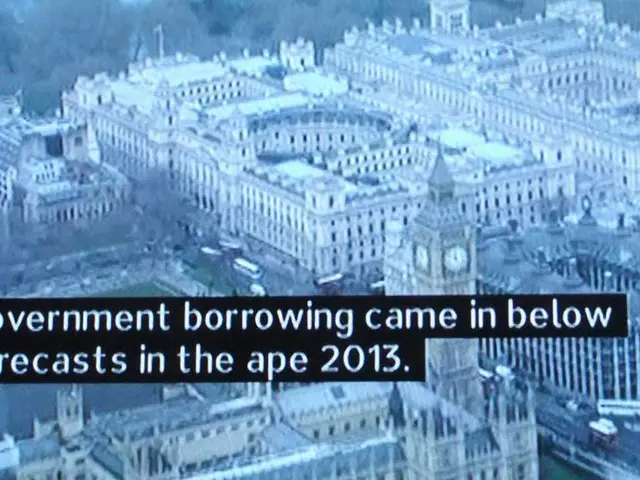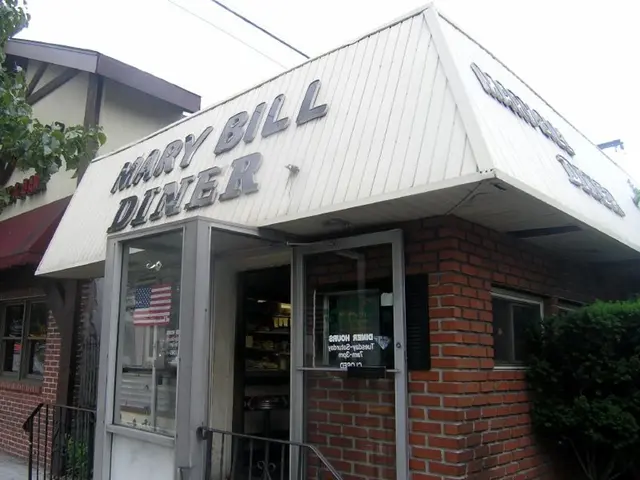Rumor circulates about Labour potentially reducing the tax-exempt 25% cash from pensions in the forthcoming Autumn Budget.
Potential Changes to UK Pension Tax-Free Cash Limit: Uncertainty Ahead
There is growing speculation about potential changes to the UK's pension tax-free cash limit, with some suggesting a reduction could be on the horizon. The Chancellor, Rachel Reeves, is reportedly considering reducing the 25% tax-free lump sum cap, currently set at £268,275, as a potential revenue-raising measure.
Under the current rules, pension savers can withdraw 25% of their savings tax-free, up to a limit of £268,275. This limit is in place following the abolition of the lifetime allowance in April 2024, replaced by the lump sum allowance (LSA). However, no official decision has been made yet, and industry experts urge caution until an announcement is made.
If the tax-free cash limit is reduced, it would primarily affect wealthier retirees and those with gold-plated public sector pensions. Past analysis has considered reducing the limit to as low as £100,000 or even £40,000. Both the Institute for Fiscal Studies (IFS) and the Fabian Society have argued that the allowance should be reduced to £100,000 because the current cap favors the wealthy.
The Labour government is considering these changes amidst a projected overspend of £22 billion inherited from the Conservatives, which might require difficult decisions. However, there was no mention of reintroducing the lifetime allowance in Labour's manifesto, suggesting they may be keeping their options open on this issue.
The tax-free cash is one of the most popular aspects of the pension system and a key reason why saving within a pension is advantageous from a tax point of view. Taking out tax-free cash and then trying to reinvest in the pension (known as recycling) could result in being taxed at up to 55% of the tax-free cash amount.
Industry experts warn that speculation around a reduction to the maximum tax-free cash allowance could lead to people withdrawing excessive funds from pensions, potentially risking reduced retirement incomes. Claire Trott, divisional director for retirement and holistic planning at St. James's Place, advises against taking out tax-free cash purely to avoid a Labour tax grab, as pensions offer a valuable tax shelter, and taking the money out could result in tax liability.
Government officials have reportedly asked one of Britain's top pension providers to assess the impact of cutting the tax-free lump sum to £100,000. If implemented, cutting the tax-free cash allowance to £100,000 could affect one in five retirees, according to the IFS.
Pensions are an easy target for governments to tinker with and raise much-needed cash. Any move to slash the pension tax-free cash could be seen as another attack on pensioners after Rachel Reeves's winter fuel payments raid. The Telegraph suggests that reducing the maximum tax-free cash limit could raise around £2 billion in revenue at the Budget.
Experts advise keeping a close eye on official government announcements regarding this issue. The Chancellor, Rachel Reeves, could potentially make an announcement about this in the Autumn Budget on 30 October. It is crucial for pension savers to understand the potential implications of any changes to the tax-free cash limit and to plan accordingly.
- The potential reduction of the UK's tax-free pension lump sum could significantly affect various sectors, including finance, business, and general-news, given its impact on retirement planning and investment strategies.
- The Labour government's consideration of reducing the tax-free cash limit, currently set at £268,275, could primarily impact wealthier retirees with large pensions, stirring discussions among political circles regarding the fairness of the change.
- As speculation surrounding potential changes to the UK's tax-free pension lump sum increases, it is essential for individuals to consult with financial advisors and closely monitor finance-related news outlets to ensure responsible savings and investment decisions, especially in light of the upcoming Autumn Budget announcement on 30 October.




